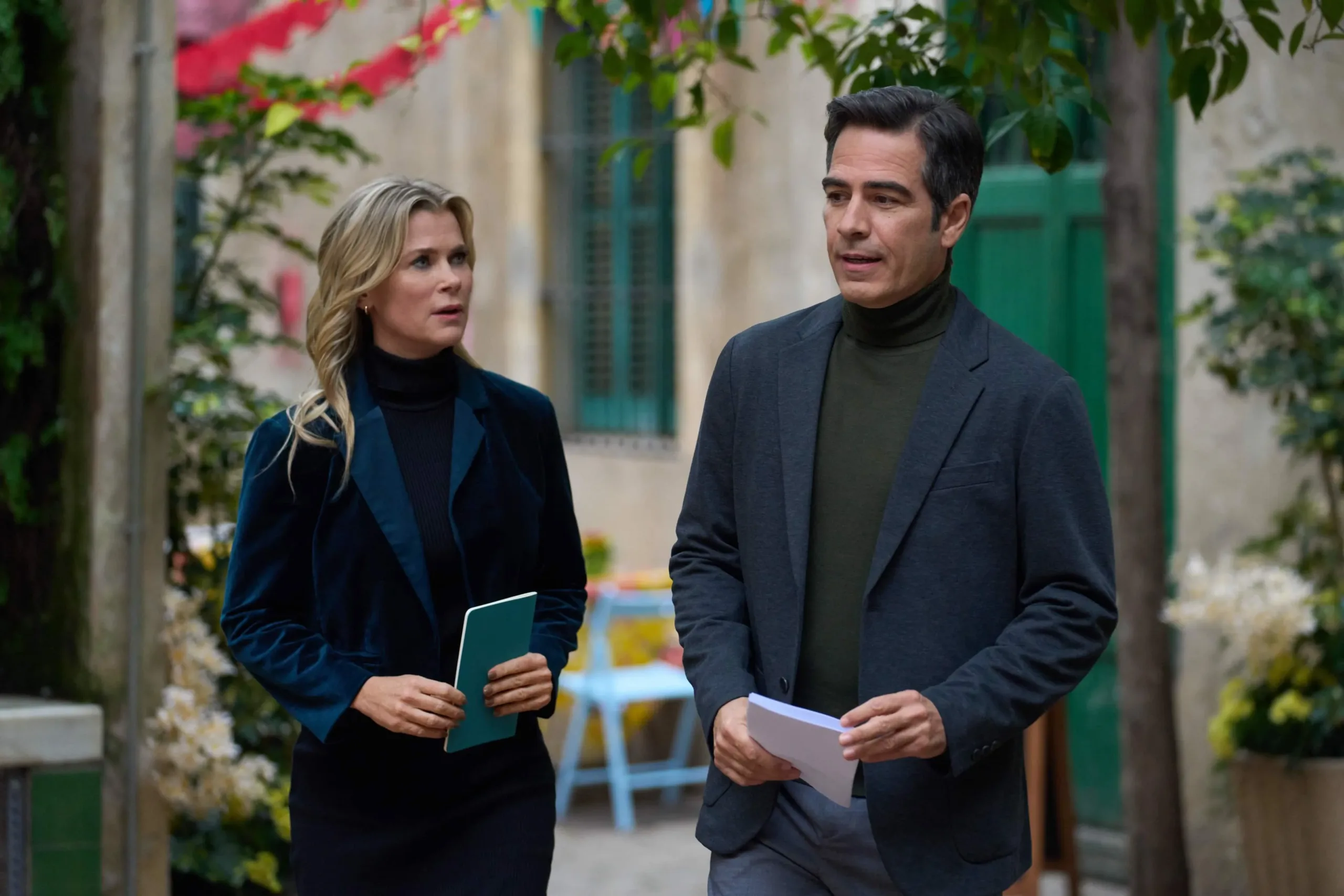The romantic comedy, as a form, often acts as a cultural barometer, measuring our collective fantasies of connection. To Barcelona, With Love presents itself as another entry in the travelogue-romance category, a genre dedicated to picturesque escapism.
We are introduced to Anna Kelly, an American author whose book, a creative-writing-class exercise titled Barcelona, Mi Amor, has inexplicably become a sensation in the very city she has only ever visited via satellite imagery. She is summoned to Spain by Nico, a handsome bookseller who runs a local literary hub, for the Sant Jordi Day festival.
Lurking in the narrative periphery is Erica, a fellow American expat and translator whose life is deeply enmeshed with both Nico and Anna’s book. The central conceit hangs on a thread of intellectual property and misplaced adoration: Anna is being lauded for a poetic depth she does not possess, creating a quiet storm of fraudulent identity set against a sun-drenched Spanish backdrop. It is, on its surface, a confection, but one with a curious, slightly bitter aftertaste of modern anxieties.
The Authorial Shell Game
The film’s engine is a fascinating, if familiar, deception. We discover that Erica, in translating Anna’s sterile prose, did not merely translate; she performed a complete artistic resuscitation, rewriting the work into something profound. She is the ghostwriter of the book’s soul.
Erica’s predicament is a distinctly modern one, trapped not by a villain but by a Non-Disclosure Agreement—a sterile corporate instrument used here to silence a creator. This sets in motion a lighthearted version of the Cyrano de Bergerac narrative, a trope that has persisted for centuries because it speaks to a fundamental fear of inadequacy.
Here, Erica reluctantly coaches the effervescent but artistically hollow Anna in the performance of being the genius Nico has fallen for. The film wisely sidesteps the potential for high drama, for threats and screaming matches, and instead lets the tension simmer in the small, awkward moments of the charade.
This gentle pressure forces an interrogation of what it means to be an artist. Is the creator the one with the initial idea, however flawed, or the one who executes it with beauty and skill? The film posits that true creation is not an act of ego, but of authentic expression, a point it makes with surprising subtlety.
A Duality of Being
The character schema presents a study in archetypes. Anna is the embodiment of American extroversion, a force of relentless optimism whose primary mode of cultural engagement is consumption (specifically, of food).
She is all surface, but what a charming surface it is. Erica is her direct inverse: introspective, grounded, a realist whose deep connection to her adopted city manifests as a quiet, poetic sensibility. Their relationship, born of a professionally awkward necessity, blossoms into an unlikely but credible friendship. This bond becomes the film’s true emotional spine.
Their individual evolutions are telling. Anna’s journey is one of redirection; she accepts her limitations as a novelist and discovers her genuine voice lies in the less romanticized, more visceral world of food writing.
This is not a failure but a successful pivot. Erica’s path is more profound; she must move from being a passive facilitator of others’ successes to the active author of her own life, a struggle many people, particularly women, face in professional and personal spheres. Nico, the object of their tangled affections, serves his purpose as a catalyst, drawn to Anna’s energy but spiritually aligned with Erica’s unseen depth.
Topography of the Heart
It has become a cinematic cliché to label a city as a “character,” yet in this case, the platitude holds. Barcelona is not a passive postcard backdrop; its identity is stitched into the very plot. The story could not exist elsewhere.
The cultural significance of Sant Jordi Day—a celebration of books and love—provides the narrative framework and thematic resonance. The camera does not just show us landmarks like the Sagrada Familia; it uses the city’s textures, from the chaos of the La Boqueria market to the simple pleasure of patatas bravas, to inform the characters’ experiences.
The warm, golden light of the city does more than create a romantic mood; it seems to actively nurture the film’s thematic concerns of growth and blossoming. For Anna, the city is a site of discovery, a place that reveals her true calling. For Erica, Barcelona is a reflection of her own being—a place she has poured her love and understanding into for years. The city, in the end, is the silent witness that knows who truly belongs.
“To Barcelona, With Love” premiered June 7, 2025 on Hallmark Channel (airing at 8 p.m. ET/PT) as part of the channel’s “Passport to Love” series.
Full Credits
Director: Ron Oliver
Writers: Julie Sherman Wolfe
Producers and Executive Producers: B.F. Painter (Associate Producer), Jonathan Shore (Supervising Producer), Kevin Leslie (Producer), Gemma Martini, Denis Pedregosa, Alison Sweeney, Ashley Williams, Craig Baumgarten (Executive Producers)
Cast: Alison Sweeney, Ashley Williams, Alejandro Tous, Miguel Brocca, Paloma Montero, José Emilio Vera, Alex Sorian Brown, Nacho Nugo, Monica McCollin, Carol Garrido, Karina Matas Piper, Ricardo Mestres, Aitor Merino, Raúl Yuste, Raquel Rodríguez, Esther Martínez Lobato, Natalia Braceli, Santiago Ledesma
The Review
To Barcelona, With Love
While wrapped in the glossy packaging of a conventional television romance, To Barcelona, With Love offers a surprisingly thoughtful meditation on artistic ownership and authenticity. It uses its charming Cyrano-style premise not just for laughs, but to explore who has the right to a story. For a film that could have been a simple travelogue, it presents a pleasantly complex look at creativity and identity, making it a cut above its peers.
PROS
- A clever script that explores themes of authorship and creative identity.
- The friendship and dynamic between the two female leads are well-developed.
- Uses the Barcelona setting as an integral part of the story, not just a backdrop.
- Effectively updates the Cyrano de Bergerac trope for a modern context.
CONS
- Follows a predictable romantic-comedy structure.
- The central premise requires a significant suspension of disbelief.
- Some character arcs, particularly Erica's prolonged passivity, can feel drawn out.


















































